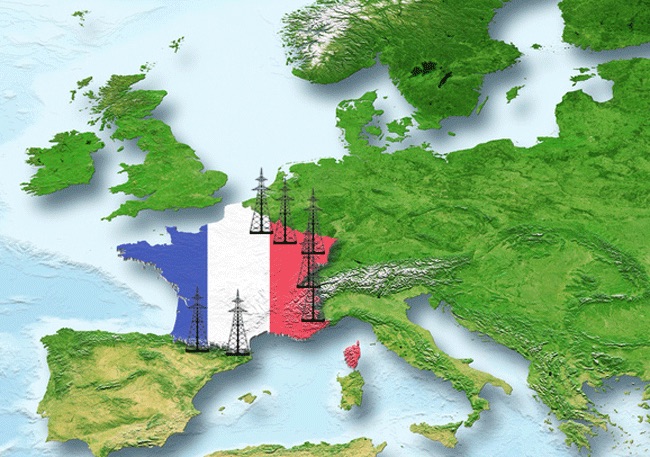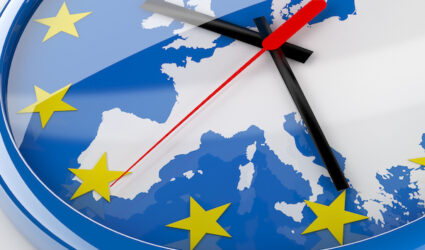24 April 2015
Security of electricity supply, more and more a European challenge


Establishing a capacity obligation in France, the NOME law set security of supply as a national priority. By launching, on the 15th of April, a public consultation on the “participation of European capacities to the French system, and the characteristics of a hypothetic European mechanism” under the mandate of Ségolène Royal, RTE shows that the issue of security of supply has now become European.
Indeed, security of supply is the first of the five dimensions of the European Energy Union, as recalled by Florian Ermacora (Head of DG Energy B2 Unit, Wholesale Markets Electricity & Gas) at the launch conference organized by RTE. It is also one of the key issues of the French Programmation Pluriannuelle de l’Energie (PPE), with a dedicated workshop. At the conference Pierre Bornard, Managing Director of RTE, recalled the two essential principles at the core of any market organization: it should reflect the underlying physical reality of the product traded, and it should reveal the value of scarcity. Well, the scarcity in the electrical system, today, is the power not the energy! It shapes the design of generation mix, networks, and determines the performance of consumers devices. But what is really happening today? The electrical system is facing a paradoxical situation: while everyone talks about generation overcapacity in Europe, there is an increasing risk of power shortages during the peak demand periods. Consequently, the risk of blackout is growing and France, like most of its neighbors, is at risk, while Belgium escaped from power outages or blackouts this winter, only thanks to a mild climate. The Adequacy Report made by RTE is not very optimistic for France and expects shortages starting from 2017. This is why; the implementation of a capacity mechanism is fully justified in France. This mechanism works as an insurance that completes the deficiencies of the current “energy only” market, failing to send the economic signals necessary to ensure investments in generation facilities, or the development of sufficient demand side management to erase the peak power demand. The French capacity market is, in fact, technologically neutral and makes no differences between generation and demand-side management. Pierre Bornard even stressed that he favored the development of demand-side tools. Olivier Baud, President of Energy Pool, has also recalled that during the implementation of the French mechanism, a significant potential of demand management in the industrial sector was already available, but unfortunately impossible to integrate due to insufficient price signals. M. Baud also called for the French capacity mechanism to be active all along the year, due to the development of intermittency, which can also lead to tension during off-peak periods.
Open…
Today already, the French mechanism takes cross-border capacity into account implicitly. Statistical models show that, in 2017, 7% of the power required to satisfy winter peak demand will come from neighboring countries. Nevertheless, some actors, such as GDF-SUEZ represented by Didier Sire (Director of Strategy of Energy Europe Business Area) and EURELECTRIC represented by Juan José Alba Rios (President of Eurelectric Market Committee), called for an explicit participation of cross-border capacities. This would allow a single generation asset located in Belgium, or Germany, to directly offer its power capacity in the French CRM. Is it possible? How? This is, as recalled by Olivier Grabette (Deputy General-Director at RTE in charge of economy, markets and innovation), the first aim of the public consultation launched by RTE.
…converge…
RTE has recalled that more than 20 countries have already implemented capacity mechanisms, with no coherence between them. The question of a convergence at a European level is therefore open. Recognizing this, Florian Ermacora has underlined the difficulty to find the right balance between the well-functioning of the “energy only” market, and the definition of minimum, common criteria for CRMs, leading ideally to a European reference model. Thanks to a successful launching of the French capacity mechanism, the Minister Segolene Royal entrusted RTE to make relevant proposals on the matter.
…the future is Europe!
UFE, which has been involved from the very beginning in the French debate on the capacity mechanism, has always considered that the security of electricity supply cannot be treated only at national level. The current debate on market design, and any additions to it, must be led now by the European Commission. To support this reflection at the European level, UFE is currently working with his German counterpart BDEW on a joint study to underline, from an industrial point of view, the interest of a convergent approach for capacity mechanisms in France and Germany (which are more efficient and less costly), while identifying the improvements needed to optimize the target model of the internal energy market. The study analyzes the French and German electrical systems and the operations of both energy markets, supplemented by a capacity mechanism, investigating its ability to respond to the fundamental issue of long-term security of supply. The final results of the study will be published by next May.
Find out more
Vision and missions


About us
The Union of the French Electricity Industry is the trade association of the French electricity sector. We bring together companies from the whole value chain of the electricity industry.
Find out moreEvents of the sector


Annual conference


Our 2023 annual conference
2023 annual conference of the Union of the French Electricity Industry
The 12th edition of the UFE annual conference has been held on 8th June 2023, in Paris.









